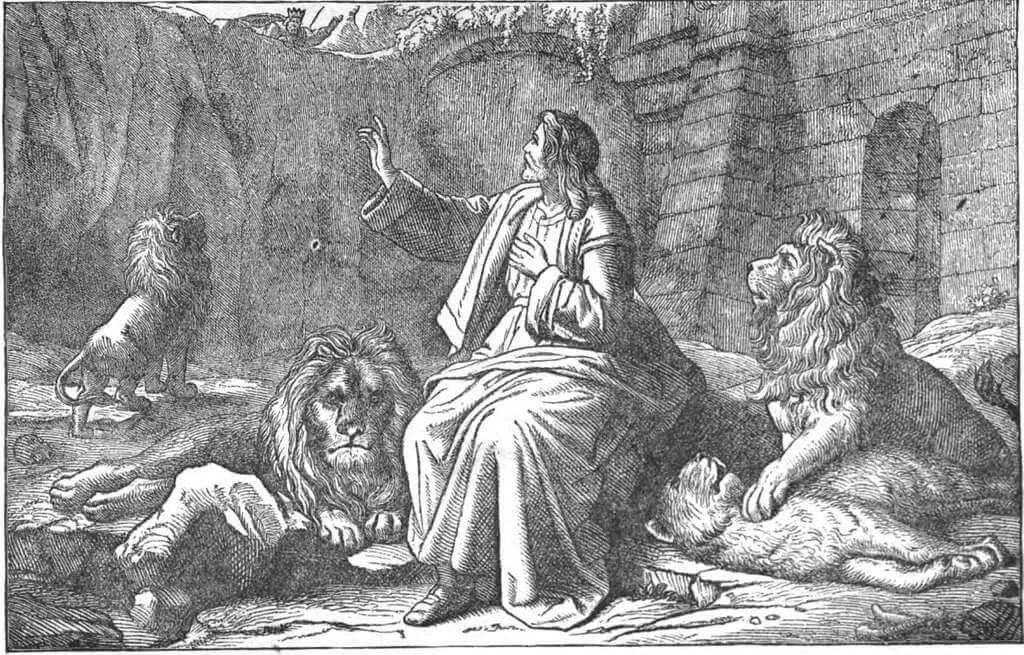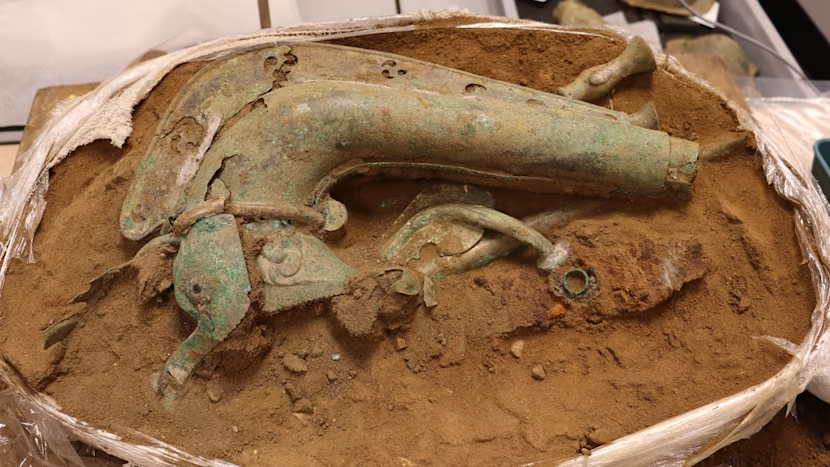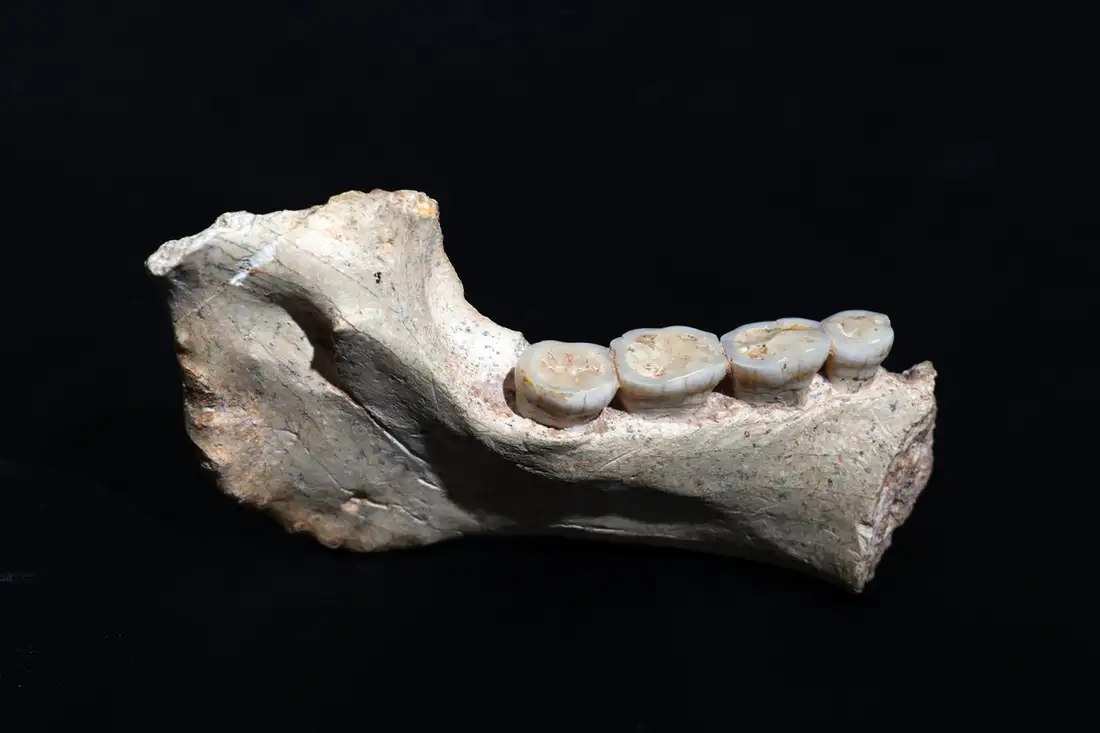The Macedonian King Foretold: Alexander the Great in Jewish Scripture?
The Jewish Book of Daniel, composed centuries before Alexander the Great, is believed by some to have prophesied his rise to power around 200 years before his birth. This prophecy foretold how Alexander would not only impact world history but also profoundly influence Judaism and its future.
In 336 BCE, at the age of 20, Alexander the Great succeeded his father, Philip II, as king of Macedonia, the Greek kingdom in northern Greece. Throughout his reign, Alexander embarked on an unprecedented military campaign that spanned much of Western Asia and Egypt, reshaping the known world. His conquests, especially in the regions of Persia and beyond, would forever change the Jewish relationship with the surrounding empires.
The Conqueror of Empires
In less than ten years, Alexander's military prowess had spread Hellenic culture to vast regions, including modern-day Turkey, Syria, Israel, Egypt, and much of the Arab world. By his early thirties, Alexander had reached the western borders of India, extending Greek influence as far as possible before his untimely death at the age of 33.
One of the key elements in Alexander's life that shaped his worldview was his education under Aristotle. The philosopher instilled in him a respect for different peoples, cultures, and religions, which became evident in his interactions with those he conquered, including the Jews.
Alexander’s Alleged Visit to Jerusalem
One of the most famous events linking Alexander the Great to the Jewish people is recorded by the Jewish historian Flavius Josephus. Following his siege of Tyre, Alexander is said to have passed through Judea, likely between 329 and 332 BCE, during the time of the Jewish High Priest Jaddua. The Talmud, however, identifies the high priest as Shimon HaTzaddik (Simeon the Just), complicating the historical accuracy of Josephus’ account.
Although many historians, including Plutarch, did not mention this encounter, Josephus describes how the Jewish people submitted to Alexander without resistance. According to Jewish tradition, as recorded in the Talmud (Yoma 69a), when Alexander approached Jerusalem, Simeon the Just and the Sanhedrin (the Jewish high court) met him in full priestly regalia. Upon seeing the high priest, Alexander dismounted from his horse and bowed in reverence. This act astonished his courtiers, who questioned how their king could bow to a Jewish priest.
Alexander reportedly responded, saying:
"I did not adore him, but the God who hath honored him with this high-priesthood, for I saw this very person in a dream, in this very habit, when I was at Dios in Macedonia, who, when I was considering with myself how I might obtain dominion of Asia, exhorted me to make no delay, but boldly to pass over the sea."
This response highlights the significant role that dreams and divine visions played in Alexander's conquests. The Jews took advantage of this moment, informing Alexander of the Samaritans' deceitful attempts to mislead him into destroying the Jewish Temple. Moved by the Jewish leaders' plea, Alexander handed over the Samaritans to the Jewish authorities for punishment.
Following this dramatic encounter, Alexander was taken into the Temple, where he offered sacrifices to the Jewish God, according to Josephus. When Alexander requested that a statue of himself be placed in the Temple, the High Priest tactfully declined, offering instead that all male children born that year would be named Alexander—a gesture that led to the Jewish name "Sander" or "Sender" becoming common in Jewish communities.
Temple Of Solomon by William Hole
The Prophecies of Daniel
Alexander’s connection to Jewish prophecy lies in the Book of Daniel, where the prophet Daniel is said to have foretold the rise of a Greek king who would topple the Persian Empire. In Daniel’s vision, a ram with two horns, representing the kings of Media and Persia, is overthrown by a goat, symbolizing the king of Greece:
"[8:20] As for the ram that you saw with the two horns, these are the kings of Media and Persia. [8:21] And the goat is the king of Greece. And the great horn between his eyes is the first king."
The goat, widely believed to represent Alexander, defeats the ram, thus marking the dissolution of the Medo-Persian empire:
"[8:5] As I was considering, behold, a male goat came from the west across the face of the whole earth, without touching the ground. And the goat had a conspicuous horn between his eyes."
Further on, Daniel writes:
"[8:8] Then the goat became exceedingly great, but when he was strong, the great horn was broken, and instead of it there came up four conspicuous horns toward the four winds of heaven."
This prophecy is often interpreted as a prediction of Alexander's early death and the division of his empire into four smaller kingdoms, known as the Diadochi:
"[8:22] Four kingdoms will emerge from his nation but will not have the same power."
The 11th chapter of Daniel elaborates further, stating:
"[11:4] His [Alexander’s] empire will be broken up and parceled out toward the four winds of heaven. It will not go to his descendants, nor will it have the power he exercised."
These “prophetic” passages appear to describe the Macedonian king's conquest and the subsequent fragmentation of his empire.
The Historical Debate: Legend or Truth?
Daniel and the lions
Despite the dramatic nature of Josephus’ account, many scholars consider the story of Alexander’s visit to Jerusalem to be apocryphal. The Jewish Encyclopedia argues that this narrative is largely fictional, while modern scholars have debated the historical accuracy of Daniel’s prophecies. Some have suggested that the prophecies were written long after the events they predict, post-dating Alexander’s conquests, thus weakening the argument that Daniel foresaw Alexander’s rise.
Furthermore, while Hecataeus of Abdera, a contemporary of Alexander, may have written about the king's visit to Jerusalem, none of his writings on the matter have survived. This lack of corroboration raises doubts about the historical veracity of Josephus’ narrative.
The Book of Daniel and its Influence
The Book of Daniel remains a powerful apocalyptic work filled with visions, symbolism, and predictions about the rise and fall of empires. Its prophecies concerning Alexander’s conquest of Persia are among the most debated, with secular historians often rejecting its claims of divine inspiration. Scholars like John J. Collins argue that the Book of Daniel was composed during the Maccabean period, centuries after Alexander's death, and was meant to reflect the historical context of that time.
Despite these debates, the story of Alexander the Great and his connection to Jewish prophecy continues to captivate both religious and historical discourse. Whether or not Alexander truly visited Jerusalem or fulfilled ancient prophecies, his legacy as a world conqueror and a pivotal figure in Jewish history remains undeniable. His reign marked a turning point not just for the Jewish people but for the entire ancient world.









